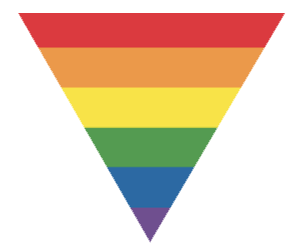Have you ever taken a step back to evaluate your relationship with alcohol (or other substances)? Just like any social relationship, a relationship with alcohol can slowly become unhealthy and benefit from reflection to determine if it is a relationship that you want to continue, and in what way. Alcohol and substance use may begin for various reasons, though a substitute bond may develop and continue over time because the substance is felt to offer “solutions” to social-emotional problems. You may have become attached to alcohol’s potential for increased sociability and confidence, a felt sense of relief or pleasure, or the experience of dialing down the volume to anxieties, depression, dysregulated mood states, and unwanted thoughts or feelings (i.e., rejection, shame). Leaning on alcohol and substances are often adaptive attempts to cope, usually in service of underlying needs like relaxation, connection, safety, and/or regulation. Though it may feel like alcohol is there for you in the short-term, it can become harmful when we cling to its false sense of regulation.
Many people struggle with where to start and where to turn to with concerns about their alcohol and substance use. For the purposes of this writing, I will predominantly refer to alcohol, though this can be applicable to other substances and coping mechanisms (i.e., binge eating, self-harm). To start, I invite getting curious and honest about “what is my relationship with alcohol?” From there, we can unpack the role and functions of alcohol in your life, including what feelings, thoughts, and urges move you toward alcohol as we map the patterns in which it is used. Evaluating your use of alcohol in this way brings awareness toward why and how alcohol fits into your life. We may also navigate “how did my relationship with alcohol get here?” to give us more information on what alcohol has offered and meant to you. I support people to explore the origins and realities of this relationship, identify socio-cultural influences to drinking along the way, as well as empower you to meet your needs and make choices that feel right for you.
You do not need to have an alcohol use disorder to evaluate how alcohol plays a role in your life. It is enough to just be curious, or perhaps to consider how alcohol has impacted sleep, exacerbated worries and anxiety, or contributed to conflict with loved ones. Re-visioning a new relationship with alcohol, shifting toward low-risk limits to change how you drink, or breaking up with it altogether (short or long-term) can be up for consideration. It is normal to grieve what alcohol once gave you when making changes. Ultimately, I invite you to consider a relationship with alcohol and substances that allows you to live your life most aligned with what you actually want, need, and value. It can also be helpful to reflect on where you are on the continuum of substance use:
- Alcohol/Substance free: No use of any substances
- Experimental Use: Use that begins out of curiosity about how a substance feels; limited to the first 1-3 times a substance is used.
- Occasional use: Infrequent and usually social use, limited to social gatherings or on weekends; low risk use that does not have negative consequences in your life.
- Regular Use: A regularity or pattern has developed leading to more frequent or daily use; a substance is part of your life though may not contribute to significant problems. The pattern of use risks becoming more excessive as tolerance develops. The relationship with the substance may require limits to prevent problems from developing.
- Problematic (or harmful) use: Problems start to develop with increased and excessive use; you continue your relationship with substances despite negative consequences within personal relationships, finances, physical, mental and/or emotional health.
- Substance Use Disorder: Dependence occurs when the repeated use of substances interferes with daily functioning, health, relationships, and responsibilities in domains of home, work, and/or school. One may experience physical withdrawal symptoms and use a substance to “feel normal”.
To further evaluate your relationship with alcohol and substances, I invite you to ask yourself:
- How do I feel about where I am on the substance use continuum?
- How do I feel toward my use of alcohol?
- What do I like about alcohol (wanted experiences)?
- What don’t I like about alcohol (unwanted experiences)?
- What patterns, rituals, and activities are most strongly associated with my use?
- What beliefs, feelings, urges, or thoughts move me toward alcohol?
- What areas of my life have been affected by my use? How?
- What other relationships and activities in my life help me feel safe, relaxed, regulated, and connected? How can I increase these?
- Does my current level of use reflect the experiences, relationships, and values I want to live by?
- What are some steps I can take with my alcohol use so that I can have more of the experiences I want and less of the experiences I do not want?
If you are interested in exploring your relationship with alcohol and/or other substances together, with non-judgement and curiosity, please reach out.
Lindsay
